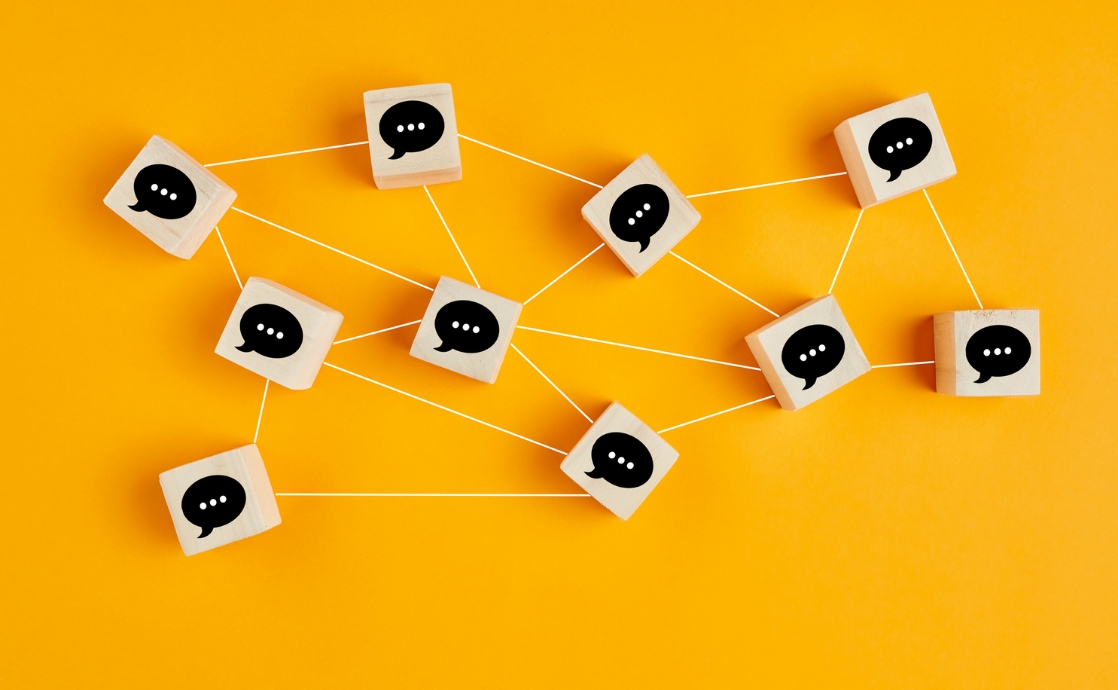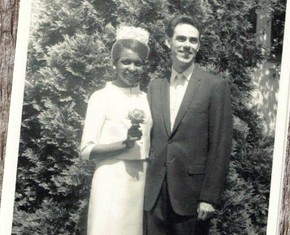The views expressed in our content reflect individual perspectives and do not represent the authoritative views of the Baha'i Faith.
The Baha’i teachings have helped me learn to lessen my judgment and preconceptions of those I meet and work with — all by knowing that I am essentially one with them, and with the entire human race.
This unifying perspective helps me not to imagine someone else is wrong and that I’m right, no matter their views, but instead — as mentioned in the first two articles of this series — to stay engaged long enough to go deeper.
RELATED: How Does Freedom of Speech Promote Peace?
The Baha’i teachings offer me the opportunity first to consider the nobility and essential humanity of the person I am with. So I choose to care about them, understand their perspective, find the commonality in our humanity, and truly comprehend whatever we are talking about. In a talk given in Paris in 1911, Abdu’l-Baha, the son of Baha’u’llah, the prophet and founder of the Baha’i Faith, explained the sound reasoning behind this overall approach:
All religions teach that we should love one another; that we should seek out our own shortcomings before we presume to condemn the faults of others, that we must not consider ourselves superior to our neighbours! We must be careful not to exalt ourselves lest we be humiliated.
Who are we that we should judge? How shall we know who, in the sight of God, is the most upright man? God’s thoughts are not like our thoughts! How many men who have seemed saint-like to their friends have fallen into the greatest humiliation. Think of Judas Iscariot; he began well, but remember his end! On the other hand, Paul, the Apostle, was in his early life an enemy of Christ, whilst later he became His most faithful servant. How then can we flatter ourselves and despise others?
Let us therefore be humble, without prejudices, preferring others’ good to our own! Let us never say, “I am a believer but he is an infidel”, “I am near to God, whilst he is an outcast.” We can never know what will be the final judgment! Therefore let us help all who are in need of any kind of assistance.
In light of that wise advice, it has become much more important to me to connect with people I meet on some level, and find ways we can work together by striving to understand why they believe what they believe. I’ve learned that it is up to me to step back, stop my automatic reactions, listen, and understand more in order to see their truth. To me, this is the Baha’i approach. In another talk given in Paris, Abdu’l-Baha said:
The fact that we imagine ourselves to be right and everybody else wrong is the greatest of all obstacles in the path towards unity, and unity is necessary if we would reach truth, for truth is one.
As I’ve thought and prayed about this over many years, I’ve realized that wanting to be right is a tough habit to break, and that the result of rightness can be very harmful — on either side of the aisle. Many authors and scholars see this insistence on being right as one of the major learned behaviors of white supremacy as a system — because insisting on being right often involves asserting dominance and control over another human being in some form or fashion.
RELATED: Avoiding the Trap of Thinking I’m Right
If we can, through a process of self-reflection, critical thinking, education, consultation, and lived experiences, learn to recognize the automatic prejudices we all carry, we may be able to think through them and stop them before they do harm to ourselves and others. In addition, being conscious as much as we can may mean we build a more inclusive perspective and establish stronger relationships with all people. There may be points another person makes, which, if we are honest with ourselves and learn to be open to, will help us better see where our own view may have some flaws.
Next time we have one of those challenging, and even what we see as insurmountable, human encounters with someone we disagree with, we can practice thinking about what prejudices might be popping up — and when it happens, we could ask ourselves a few simple questions:
- Do I know this person well enough to understand why they believe as they do?
- How am I approaching the person? From a place of rightness, or in an attempt to understand?
- Am I truly hearing what is being expressed behind the words, including the perspective or experience that has caused the opinion? Where is the opinion really coming from? What emotions, life experiences, or situations might be framing that perspective?
- Is it worth it to push my views and be right? Or should I listen, ask questions, and learn more to see if it can be worked through?
- Am I learning more about this person without my preconceived ideas getting in the way?
- What can I do to promote dialogue in a way that will keep us together long enough to find our common ground and a path of peace between us?
In the end, I realize for some this may seem like an impossible task, considering what is happening these days in America. I completely understand this point of view. I share these thoughts because I see as a society, we are growing more and more polarized. Eventually, the gulf between us may grow so wide that it becomes harder and harder to bridge as time passes. It also may cause even more severe pain and difficulty, which I really don’t even want to consider at the moment, because we are treading down a pretty precarious path.
I hope that we find ways to practice and learn to see one another without prejudice, recognize our learned behaviors, investigate truth for ourselves while respecting the perspectives of others, and continue to learn ways we can all live together in greater peace and tranquility. As Baha’u’llah so nobly stated:
Incline your hearts, O people of God, unto the counsels of your true, your incomparable Friend. The Word of God may be likened unto a sapling, whose roots have been implanted in the hearts of men. It is incumbent upon you to foster its growth through the living waters of wisdom, of sanctified and holy words, so that its root may become firmly fixed and its branches may spread out as high as the heavens and beyond.
O ye that dwell on earth! The distinguishing feature that marketh the preeminent character of this Supreme Revelation consisteth in that We have, on the one hand, blotted out from the pages of God’s holy Book whatsoever hath been the cause of strife, of malice and mischief amongst the children of men, and have, on the other, laid down the essential prerequisites of concord, of understanding, of complete and enduring unity. Well is it with them that keep My statutes.
The world is in great turmoil, and the minds of its people are in a state of utter confusion. We entreat the Almighty that He may graciously illuminate them with the glory of His Justice, and enable them to discover that which will be profitable unto them at all times and under all conditions. He, verily is the All-Possessing, the Most High.
















Comments
Sign in or create an account
Continue with Googleor